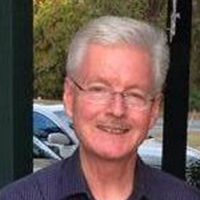 Biloxi Criminal Lawyers, Mississippi
Biloxi Criminal Lawyers, Mississippi
Sponsored Lawyers
1-10 of 18 matches
Criminal, Divorce & Family Law, Immigration, Estate, Accident & Injury
W. F. "Dub" Hornsby, III, is a lifetime resident of Biloxi. A graduate of Mercy Cross High School, Mississippi State University and the University of Mississippi School of Law. Dub lives in Biloxi with his wife Courtney. Dub is an officer in the Mississippi National Guard as a Judge Advocate. Dub focuses his practice on the areas of criminal law (DUIs, wrongfully accused assaults, etc.) and municipal law as the primary City Attorney & City Prosecutor for the city of D'Iberville, Mississippi for the last 13 years. W. F. Hornsby, III, born, Baton Rouge, Louisiana in 1977; admitted to Mississippi Bar in 2002, U. S. District Court Northern and Southern Districts of Mississippi, U.S. Court of Appeals, Fifth Circuit; admitted to Texas Bar in 2005; admitted to Alabama Bar in 2008. Education: Mississippi State University (Bachelor of Political Science, 1999), University of Mississippi (J. D. 2002), Vice-President Law School Student Body (2001-2002).
(more)Criminal, DUI-DWI, Expungement, Felony, Juvenile Law
Scott Harold Lusk is a seasoned attorney based in Biloxi, MS, with a distinguished career in criminal and family law. With a background as a retired felony prosecutor, Scott brings a wealth of experience to his practice in criminal defense, as well as family law matters such as guardianship, divorce, and power of attorney. He is a proud member of the National Association of Criminal Defense Lawyers, demonstrating his commitment to defending the rights of his clients. Scott serves a broad community, including Harrison, Hancock, Jackson, and Stone Counties, as well as the cities of Biloxi, Gulfport, Long Beach, Ocean Springs, and beyond. Outside of his legal practice, Scott is a devoted family man, married with four children, and an active member of the New Life Family Church in Biloxi.
(more)Criminal, Divorce & Family Law, Accident & Injury, Estate, Bankruptcy & Debt
Rob Curtis is a practicing lawyer serving Gulfport, MS and the surrounding area.
(more)






